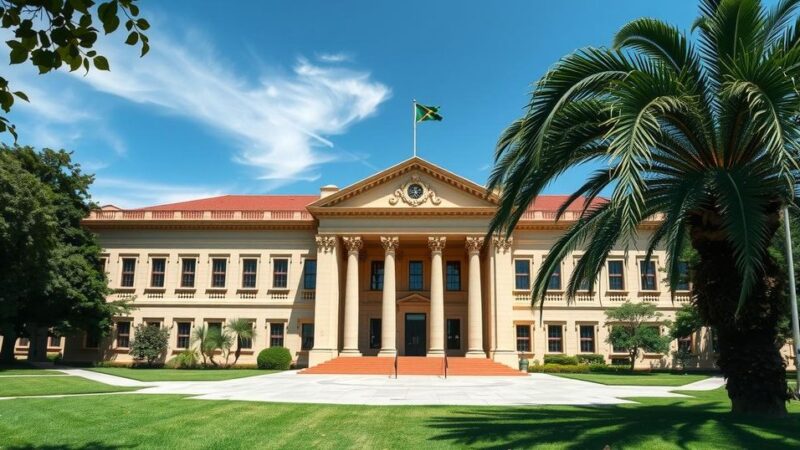Prices of goods and services in Mozambique rose significantly in February, primarily due to a 4.74% increase in food service costs. Key areas affected include food and beverages, alongside restaurants, with urban centers like Tete and Xai-Xai experiencing the highest increases. Business owners are adapting to these challenges by altering suppliers and menu items, though uncertainty persists, especially during Ramadan.
In February, the National Institute of Statistics reported a notable increase in the prices of goods and services, primarily driven by a 4.74% rise in food service costs. Consumers faced challenges as overall prices surged by 4.47%, higher than the previous year. Key sectors such as food and non-alcoholic beverages and restaurants experienced significant hikes, with increases of approximately 11.89% and 6.20%, respectively.
The highest price increases were recorded in major urban centers, with Tete experiencing an increase of about 6.85%, while Xai-Xai followed at 6.17%. Maputo reported a rise of 4.74%, and Nampula noted 4.71%. Quelimane exhibited the smallest increase at 3.45%. Investigating these price increases, our reporters discovered that the rise in raw material costs due to post-election protests was a central contributing factor.
Wilma da Cruz, an employee at a bakery in Maputo, explained that they had to alter their supply sources due to the disrupted supply chain, eventually leading to necessary price adjustments. “Not all of our products have been increased in scale… to maintain customers,” she noted, aiming to keep price increases to a manageable 10%-20% to prevent losing clientele.
Conversely, Raquel Lopes, who runs a restaurant, articulated her challenges in raising prices while attempting to maintain customer loyalty. “Knowing the situation, increasing the price is the most viable and quickest solution, but we also have to understand the situation versus the customer a little,” Lopes commented. She modified her menu to utilize more national ingredients, thus adapting to pricing pressures.
Despite these adjustments, uncertainty looms in the restaurant sector, as highlighted by Anaisse Perreira, a snack bar manager who acknowledged the decline in patronage. “I can’t say that we are happy with the accounts, nor that things are normal,” she stated, reflecting ongoing economic pressures. Though they have made efforts to increase sales and reduce costs, stability remains elusive, especially during the Ramadan period when dining patterns changed significantly.
Business owners are cautiously navigating through these tough economic times. Anaisse shared her experiences of closures due to supply issues and ongoing uncertainty in customer turnout. “What will the movement be like today?” she pondered, emphasizing the daily unpredictability that restaurant owners face. Many local vendors struggled to supply businesses, compounding the difficulties faced in the aftermath of protests.
The substantial increase in prices of goods and services in Mozambique during February indicates a challenging economic climate for consumers and business owners alike. The overall rise of 4.47% in prices, particularly within the food sector, has prompted businesses to adapt their strategies to retain customers amidst rising input costs. Owners are grappling with supply chain disruptions and shifting consumer behaviors, particularly during Ramadan, leading to uncertainty in their operations. Despite these obstacles, businesses continue to seek ways to navigate the difficulties and regain stability.
Original Source: clubofmozambique.com






